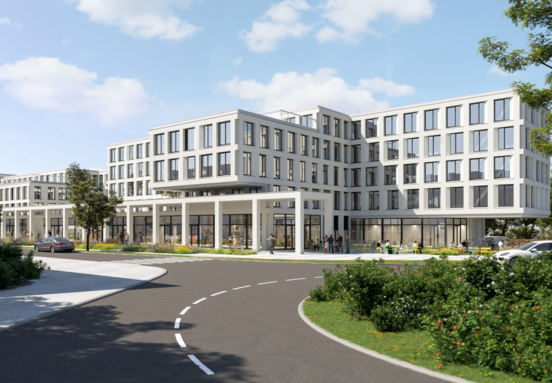The ING departure: a case study in commercial property dynamics
ING Luxembourg's decision to withdraw from retail banking led to the closure of its prominent 800 m2 agency on Grand-Rue. This move, scheduled for the end of September, has not only stirred controversy among clients, unions, and politicians but also ignited a significant legal dispute with its landlord, Store Invest.
The landlord is demanding several million euros in damages, alleging 'disruptive methods' on ING's part, highlighting the potential financial complexities and repercussions when commercial leases are terminated, especially in prime locations.
Navigating prime locations: regulatory shifts and urban planning
This incident also brings to light the intricate regulatory landscape governing commercial properties in Luxembourg City. The bank's presence in this prime commercial zone has a contentious history; as far back as 2014, the City of Luxembourg proactively amended its general development plan (PAG).
This amendment explicitly aimed to prohibit financial institutions like banks, insurance companies, and real estate agencies from occupying 'prime locations.' The clear objective was to safeguard and promote local businesses, fostering a more diverse commercial ecosystem. This demonstrates a critical factor for businesses: the dynamic nature of urban planning and its direct impact on commercial property usage.
Understanding zoning and development plans
For any business scouting new premises, understanding local zoning laws and general development plans (PAGs) is paramount. Changes in these regulations can significantly impact the long-term viability and permitted use of a commercial space.
What might seem like a perfect location today could be subject to future restrictions, altering a business's operational landscape or even its eligibility to occupy a specific type of property.
Commercial lease disputes: a costly reality
The multi-million euro dispute between ING and Store Invest serves as a stark reminder of the potential financial risks involved in commercial leasing. Even large, established entities are not immune to costly legal battles when lease agreements are prematurely terminated or contested.
For businesses, this underscores the critical importance of a meticulously drafted lease agreement that anticipates various scenarios, including early termination clauses and dispute resolution mechanisms.
Mitigating lease risks
Businesses should prioritize comprehensive legal counsel during lease negotiations. Ensuring that exit strategies, break clauses, and potential liabilities are clearly defined and understood can prevent future disputes and significant financial exposure.
Thorough due diligence on both the property and the local landlord-tenant laws is essential to mitigate unforeseen risks.
Strategic considerations for businesses seeking space
ING's departure from Luxembourg City's hypercentre offers valuable lessons for businesses looking to rent office or warehouse space. Beyond the allure of a prime location, it's crucial to assess the broader regulatory environment, potential for urban planning changes, and the robustness of lease agreements.
Prioritizing flexibility, conducting thorough risk assessments, and understanding the evolving nature of commercial property landscapes are key to making informed and sustainable real estate decisions.
Source: reporter.lu







